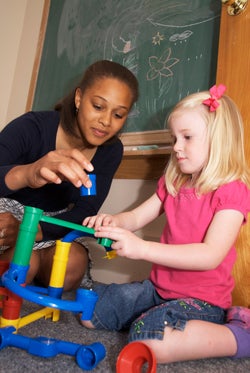Child Anxiety Program
Overview

Did you know that anxiety is the #1 mental health concern in children?
Growing up is hard work. Given the challenges faced by children, adolescents, and families, it is important that our children have the skills to cope with anxiety as well as other significant stressors they will likely face in the course of development.
The mission of the URI Child Anxiety Program is to contribute to the greater understanding of childhood anxiety disorders through treatment, training, and research. Here, at the Child Anxiety Program, we:
- Provide psychological evaluations, empirically-supported treatments, and psychoeducational opportunities that are cost effective and accessible,
- Offer new professionals the best possible training and extensive supervision,
- Raise public awareness of childhood anxiety disorders through community outreach and dissemination of research, and
- Dedicate our clinic procedures to enable the evaluation and refinement of our services.
Our goal is to:
- Give you a better understanding about your child’s anxiety,
- Explain who we are, what we do and how we do it,
- Identify who can benefit from the Child Anxiety Program, and
- Explain the simple steps to be taken in order to become a client.
The Child Anxiety Program follows a very specific protocol that includes a comprehensive intake evaluation with both the anxious child and his/her parents (separate interviews are conducted), coordination of care with medical/school personnel (as appropriate), and a 16-20 session treatment schedule that includes individual sessions with the anxious child as well as sessions with parents to help reinforce coping skills, support parent efforts to manage anxiety at home/school, and strategize around areas where families may encounter barriers or unexpected setbacks.
Periodically, the clinicians for the Child Anxiety Program (along with the Director of the Child Anxiety Program, Dr. Ellen Flannery-Schroeder) offer Parent Training/Consultation Workshops. These workshops are offered exclusively to parents (they do not entail any direct care for anxious children), are tailored to provide specific skills/strategies to address concerns of the families enrolled, and are open to all members of the community (parents do not need to have their child/ren currently enrolled in the CAP program to participate).
